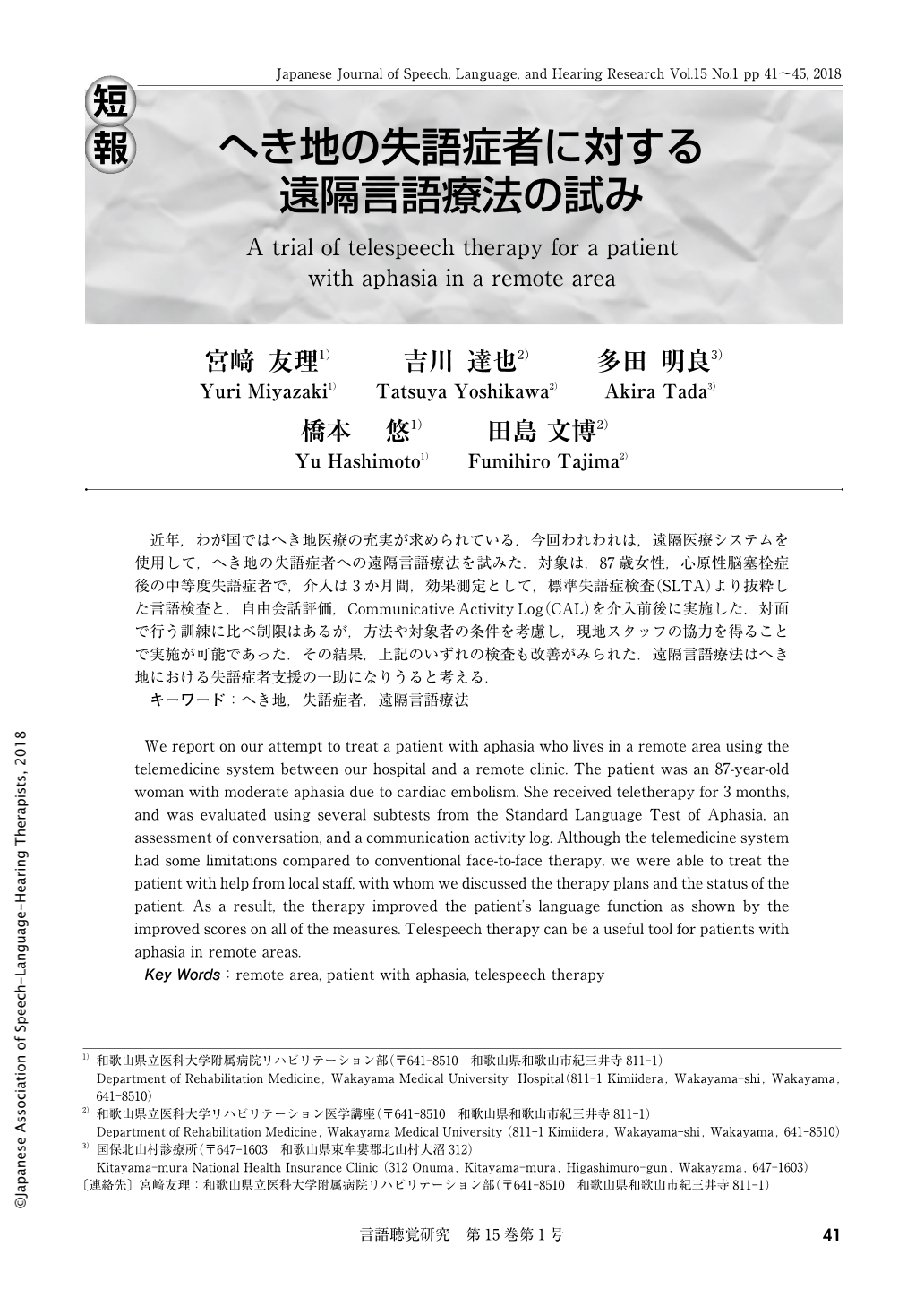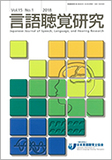Japanese
English
- 有料閲覧
- Abstract 文献概要
- 1ページ目 Look Inside
- 参考文献 Reference
- サイト内被引用 Cited by
近年,わが国ではへき地医療の充実が求められている.今回われわれは,遠隔医療システムを使用して,へき地の失語症者への遠隔言語療法を試みた.対象は,87歳女性,心原性脳塞栓症後の中等度失語症者で,介入は3か月間,効果測定として,標準失語症検査(SLTA)より抜粋した言語検査と,自由会話評価,Communicative Activity Log(CAL)を介入前後に実施した.対面で行う訓練に比べ制限はあるが,方法や対象者の条件を考慮し,現地スタッフの協力を得ることで実施が可能であった.その結果,上記のいずれの検査も改善がみられた.遠隔言語療法はへき地における失語症者支援の一助になりうると考える.
We report on our attempt to treat a patient with aphasia who lives in a remote area using the telemedicine system between our hospital and a remote clinic. The patient was an 87-year-old woman with moderate aphasia due to cardiac embolism. She received teletherapy for 3 months, and was evaluated using several subtests from the Standard Language Test of Aphasia, an assessment of conversation, and a communication activity log. Although the telemedicine system had some limitations compared to conventional face-to-face therapy, we were able to treat the patient with help from local staff, with whom we discussed the therapy plans and the status of the patient. As a result, the therapy improved the patient's language function as shown by the improved scores on all of the measures. Telespeech therapy can be a useful tool for patients with aphasia in remote areas.

Copyright © 2018, Japanese Association of Speech-Language-Hearing Therapists. All rights reserved.


